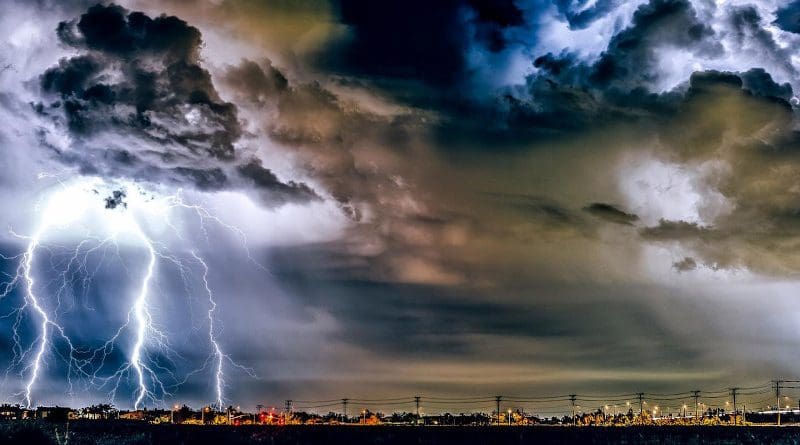Importance Of Climate Communication – OpEd
Even if people do not conceive of it as climate change, severe weather, increasing temperatures, and changing rainfall patterns are affecting people all around the globe. The public may access climate change research that support this claim using a wide range of data. It is not known how many people comprehend these messages and if they reach those most at danger from climate change, but it is a start.
When discussing climate change solutions, scientists and the general people may not be able to communicate effectively. Inaction or unintentional activity are both possible outcomes. Thus, climate communication must be clear, concise, and consistent. To explain changes in the environment, individuals in their communities typically tell personal anecdotes and folktales. Media coverage of these stories is scarce. Climate change politics and policy continue to occupy the whole second floor.
The emphasis of the reporting is on climate change conferences and discussions, as well as national and state activities. Even if they may not have a huge impact on the individuals directly impacted, they are serious issues. Clarification and simplification of terminology related to climate change may be possible with the aid of the media. It might have a significant impact on the public’s perception of the issue and the subsequent chain reaction. By influencing people’s behaviour and attitudes, boosting their knowledge of climate change, and providing them with more information about it, it might accomplish this.
To emphasise how critical it is that we act immediately, media outlets all around the world are aggressively adjusting their vocabulary. The term “climate crisis” or “climate emergency” is increasingly more often used than climate change. This just serves to emphasise how critical it is to act. The phrase “climate science denier” is used to describe persons who have a different view of how the Earth’s temperature is increasing. Since the anti-abortion campaign is so powerful and disseminating disinformation is so dangerous, the latter is equally vital to accomplish in this scenario. The greatest approach to disseminate information is still via the use of conventional media. We need to utilise modern media to spread the news about climate change, which is occurring right in front of our eyes.
Poetry and art are crucial tools for reaching a wide audience. So are social media and documentary films. Broad appeal may be achieved by using several forms of media to reach different audiences. We must thus make full use of all available resources in order to achieve our overarching aim of exchanging knowledge and pushing for mitigation and adaptation measures. A lack of motivation and the belief that one’s own efforts will have little influence are two more factors that contribute to apathy. Early intervention and integration of climate science and climate action into school curricula may be the answer. This will help people realise that they have a role to play in reducing the consequences of climate change and change in the present and future.
Young people are increasingly taking up the cause of climate change as the repercussions become more apparent, and they are urging others to do the same. It is necessary to cultivate community participation in climate action in order to increase citizen-led transformations. To achieve the Sustainable Development Goals, the people must be involved. There is no doubt about that. A successful campaign may raise awareness, which in turn encourages individuals to get more involved in fixing problems in their communities. Because of their close familiarity with the land, those who depend on natural resources are not only the most vulnerable to climate change, but also the most positioned to lead the movement.
Indigenous and traditional knowledge are now being included into their attempts to adapt as they become more aware of the problem. Communities and tribes in the Amazon are viewed as forest guardians who assist people adjust to environmental changes. The stories of local heroes may be used to showcase successful projects and inspire others to take action. Political will and government backing for community action may also inspire individuals to become involved. At all levels, from federal to municipal governments are striving to address climate change as part of the National Action Plan on Climate Change (NAPCC). Measures tailored to each individual state are also being used.
None of them give a damn about how people frame the conversation about climate change. Despite the fact that these intricate plans are accessible, their implementation is still poor. Community leaders and influencers must be mobilised in order to ensure the climate action plan is implemented effectively. It is only by making climate change a part of the system at all levels and focusing on communication that we can encourage individuals to alter their behaviour. Climate change is a genuine and pressing issue for civilization, not merely a passing fad or trend on social media. It is more than simply another topic to discuss. Communication about climate change is crucial because it helps people better grasp the issue and become more conscious in a manner that is intelligible, sympathetic, and practical.
*Adeel Mukhtar Mirza, Assistant Research Associate, Islamabad Policy Research Institute

